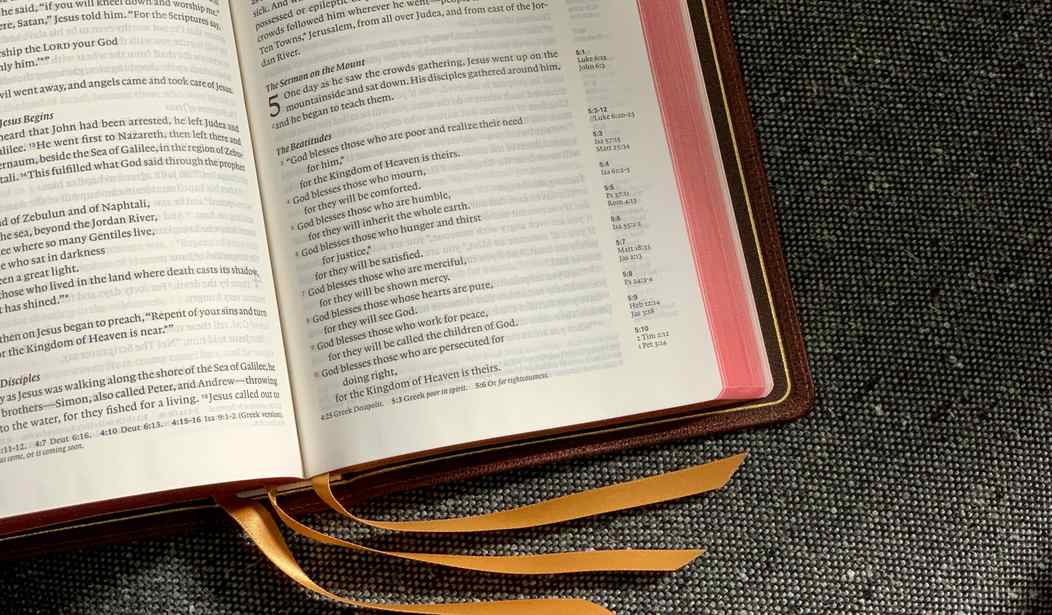The Sermon on the Mount contains some of the most quotable teachings of Jesus. Even people who aren’t believers know the concepts and phrases from these chapters in Matthew: “salt of the earth,” the Beatitudes, the Lord’s Prayer, “Judge not,” the Golden Rule, and more.
It’s the longest uninterrupted stretch of teaching in the New Testament, and there’s tons of richness that we can glean from it. I recently read an exploration of the themes in the Sermon on the Mount in which seminary professor Daniel K. Eng opened my eyes to how Jesus touched on the past, present, and future. Let’s dig in and see what that means.
Jesus addressed the past in this sermon by expanding on the teachings and principles of the Old Testament. There’s a sizeable stretch of statements where Jesus told His followers, “You heard that it was said…” and he reminded them of what the Jewish scriptures had to say about a particular matter. But Jesus followed those statements up with “…but I tell you…” and took those ideas to the next level.
In these passages, Jesus was demonstrating the truths that His audience knew from the teachings of Moses and elaborating on them from His own authority as the Son of God, which continues to provide application for us today. Eng writes:
With his teaching grounded in the Old Testament, Jesus demonstrates that he is not starting a new religion. He preaches a strong continuity with what the Jewish people had already observed. He declares that he is not abolishing the law or the prophets and that every part of the law is to be kept (5:17–19). At the same time, Jesus is taking the Scripture that the people know from the past—the law and the Prophets—and fulfilling them. As the originator of the Hebrew Scriptures, he explains their true intent. As we repeatedly see throughout Matthew, Jesus’s life and teachings fulfilled the Scriptures. By trusting Jesus and holding to his teaching, we can understand God’s will.
The present in the Sermon on the Mount came up when Jesus told His listeners how to live their lives in light of God’s Kingdom on earth. Jesus’ arrival on earth heralded the beginning of the Kingdom of God because God Himself was dwelling among His people as a human, and of course, it continued after Jesus’ ascension by the presence of the Holy Spirit living inside those who call on the name of Jesus as Lord and Savior.
“In his instruction, Jesus gives ethical teaching that applies to the present age,” Eng points out. “He teaches his hearers to have joy in persecution (5:12), to be the light to a dark world (5:14), to engage in good deeds as a testimony to others (5:16), to act righteously in regard to marriage (5:31–32), to love our enemies (5:44), and not to be anxious about needs (6:25). These acts, attitudes, and postures characterize those who are part of the kingdom in the present.”
Jesus’ teaching in this sermon contains real-world applications that meant something to His followers then and resonate with believers today. We can always take the Sermon on the Mount to heart and apply it to our lives in the present day.
Related: Sunday Thoughts: What to Do While We’re Waiting
But how does the Sermon on the Mount reflect the future? There’s a definite eschatological bent in the sermon, as Eng points out. It’s not an “it’s the end of the world as we know it” kind of eschatology but a mindset that looks at life in view of eternity.
Eng tells us:
While Jesus comes and declares that the kingdom has arrived in the present, he also talks about the kingdom being in the future. He teaches about a future entrance into the kingdom (5:20; 7:21), and he instructs his hearers to pray that the kingdom will come (6:10). By using language about both the present and future aspects of the kingdom, Jesus teaches that the kingdom of God does not merely exist at a single point in time (see the parables about the kingdom in 13:1–50). This already-but-not-yet aspect of the kingdom points to what many call inaugurated eschatology. Jesus has brought the kingdom, but it will reach its full realization in the future.
Matthew wrote, “And when Jesus finished these sayings, the crowds were astonished at his teaching, for he was teaching them as one who had authority, and not as their scribes” (Matthew 7:28-29, ESV)
As followers of Jesus, we have our grounding in the timeless truth and traditions of the past, we have teachings to guide us in the present, and we have hope for the future. All of those things can help us to focus on Him; may we do that every day.










Join the conversation as a VIP Member